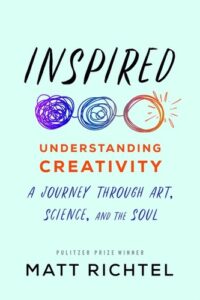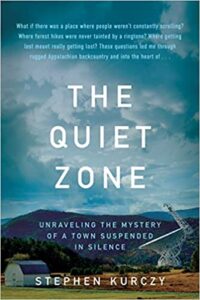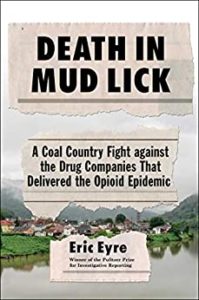Jun 15: Inspired–Understanding Creativity with Matt Richtel
 A Journey Through Art, Science, and the Soul
A Journey Through Art, Science, and the Soul
How do we define creativity? How does it work? Where does inspiration spark? How can we optimize our own creative potential? And what do great creators have to share with us?
Pulitzer Prize winning journalist Matt Richtel takes a deep dive into the new science behind creativity and creative minds, and blends it with insight from great creators, and stories of his own. We talk about The Muse and Hope. Why intelligence doesn’t always factor into creativity. How anyone can become more creative. And more delicious insight from Inspired: Understanding Creativity, A Journey Through Art, Science, and the Soul.
About Matt Richtel
An American writer, narrative storyteller, and New York Times Science reporter Matt Richtel was awarded the 2010 Pulitzer Prize for National Reporting for a series on distracted driving. He’s the author of three narrative nonfiction books, several novels, and a daily comic strip. His latest book is Inspired: Understanding Creativity, A Journey Through Art, Science, and the Soul.
Catch our previous podcast with Matt Richtel right here A Deadly Wandering.
Continue reading


